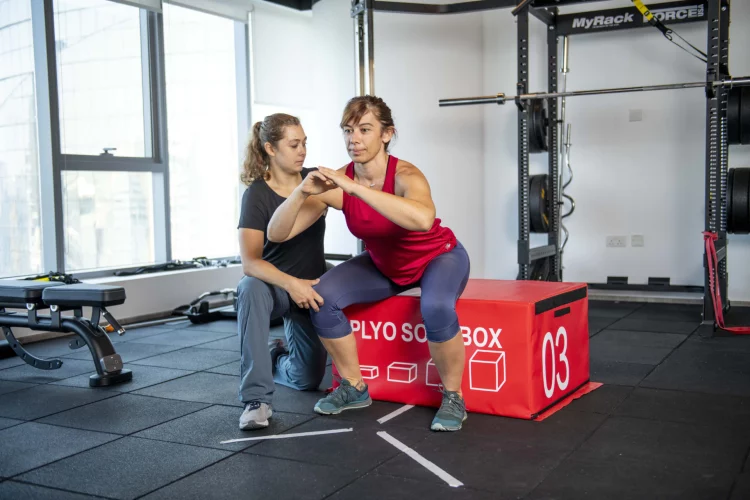Introduction: A New Era in Fitness Philosophy
In the ever-evolving world of health and wellness, a shift has occurred—one that recognizes the symbiotic relationship between the body and the mind. This movement is known as functional fitness, and it represents more than just a new workout trend. Functional fitness is a comprehensive training approach that not only improves physical strength, endurance, and mobility but also cultivates mental resilience, focus, and emotional regulation. It redefines fitness beyond aesthetic goals and isolated muscle training, instead emphasizing real-life movement patterns, neurological engagement, and psychological well-being. As chronic stress, sedentary lifestyles, and mental fatigue become modern epidemics, functional fitness programs offer a powerful antidote through holistic, purposeful training that builds both physical capacity and mental grit.
Understanding Functional Fitness
Functional fitness refers to training methods designed to enhance the body’s ability to perform everyday activities efficiently and safely. Unlike traditional gym workouts that isolate muscles through machines or repetitive sets, functional fitness mimics natural movement patterns such as squatting, pushing, pulling, lifting, twisting, and walking. These movements are typically executed using bodyweight exercises, free weights, kettlebells, resistance bands, or unstable surfaces like balance balls and BOSU trainers. The goal is to build integrated strength, coordination, and flexibility, while simultaneously engaging the mind through proprioception, balance, and cognitive challenge. Functional fitness, therefore, represents a full-body approach to training, rooted in biomechanics and neuroscience.
Mind-Body Integration: The Dual Purpose of Functional Training
One of the most compelling aspects of functional fitness is its inherent engagement of the mind. Functional movements require focus, coordination, and responsiveness. Whether performing a compound lift or navigating an obstacle course, the brain must actively participate to maintain posture, balance, and control. This fosters enhanced neural pathways and stimulates brain regions responsible for executive function, decision-making, and emotional regulation. Research in neuroplasticity suggests that physically challenging movements that demand cognitive input—such as agility drills, plyometric patterns, or loaded carries—can improve mental acuity and reduce symptoms of anxiety and depression. Thus, functional fitness is not only physically effective but also mentally enriching, promoting brain health alongside muscular strength.
Key Elements of Functional Fitness Programs
Effective functional fitness programs incorporate several foundational elements:
- Compound Movements: Exercises like squats, lunges, deadlifts, and push-ups that engage multiple joints and muscle groups.
- Core Stability: A strong core is essential for spinal health, balance, and efficient movement in daily life.
- Mobility and Flexibility: Stretching, dynamic warm-ups, and movement drills improve joint range of motion and reduce injury risk.
- Balance and Coordination: Unstable surfaces and single-leg exercises challenge proprioception and neuromuscular control.
- Cardiovascular Conditioning: Functional training often includes high-intensity circuits or metabolic conditioning (metcon) to enhance endurance and cardiovascular efficiency.
- Mindfulness and Breathwork: Some programs incorporate breathing techniques, body scans, or meditation to foster mental clarity and recovery.
This multidimensional design allows participants to build a more adaptable, resilient body while simultaneously cultivating mental sharpness and stress tolerance.
Mental Resilience Through Physical Challenge
One of the profound psychological benefits of functional fitness is its capacity to build mental toughness. Functional workouts often involve high-intensity intervals, unpredictable sequences, and time-based challenges that push participants out of their comfort zones. This creates opportunities to practice perseverance, self-discipline, and emotional regulation under pressure. As individuals navigate discomfort and overcome physical obstacles, they develop confidence and mental grit that translate to other areas of life. In fact, studies in sports psychology reveal that overcoming physical adversity in training can buffer against anxiety, increase self-efficacy, and promote resilience in daily stressors. The body becomes a classroom for cultivating the mind, making functional fitness an empowering tool for psychological growth.

Populations That Benefit Most from Functional Fitness
Functional fitness is accessible and beneficial to a wide array of populations:
- Older Adults: It enhances balance, coordination, and strength for fall prevention and independence.
- Athletes: It improves performance through sport-specific movement patterns and injury prevention.
- Rehabilitation Patients: It supports joint stabilization and muscular reconditioning post-injury.
- Professionals with Sedentary Jobs: It counteracts postural imbalances and sedentary fatigue.
- Military and Tactical Personnel: It builds durability, reaction time, and cognitive readiness.
- General Populations: It improves body awareness, mental clarity, and everyday functionality for better quality of life.
Whether you’re lifting groceries, climbing stairs, chasing children, or navigating a demanding workday, functional training helps prepare the body and mind for real-life challenges.
Neuroscience and Functional Training
Recent research in neuroscience supports the connection between movement and mental performance. Exercise-induced neurogenesis—the creation of new brain cells—has been shown to occur in the hippocampus, the region involved in memory and emotional regulation. Functional fitness, with its complex movement patterns, also activates the cerebellum and prefrontal cortex, improving coordination, problem-solving, and focus. High-intensity functional training can increase the production of brain-derived neurotrophic factor (BDNF), a protein that enhances synaptic plasticity and resilience to stress. Moreover, bilateral movements, cross-body patterns, and sensory stimulation in functional training mimic neuro-rehabilitative strategies used in stroke recovery and cognitive decline prevention. Functional fitness, therefore, is not just a workout—it’s a brain-training protocol grounded in science.
Popular Functional Fitness Systems and Programs
Several well-established programs embody the principles of functional fitness while integrating mental resilience training:
- CrossFit: Known for high-intensity, varied functional movements that foster strength, endurance, and mental toughness.
- F45 Training: Offers team-based interval training that mimics everyday movement while fostering community support.
- TRX Suspension Training: Uses bodyweight and leverage to develop strength, flexibility, and core stability.
- Animal Flow: A ground-based movement system that combines strength, mobility, and mental focus.
- MovNat: Focuses on natural human movement such as crawling, climbing, and balancing to build real-world functionality.
Each of these systems brings unique value, and individuals can choose based on personal goals, physical ability, and psychological preference.
Mental Health Benefits: Evidence-Based Outcomes
Beyond anecdotal reports, the mental health benefits of functional fitness are supported by a growing body of evidence. Research in Frontiers in Psychology found that functional training reduced anxiety and improved cognitive flexibility in young adults. Another study in Journal of Physical Activity and Health revealed that participants in a 12-week functional training program experienced significant improvements in mood, self-esteem, and mental resilience. Group-based programs also foster social connection, which enhances emotional well-being and mitigates loneliness. For individuals experiencing burnout or depressive symptoms, functional training offers a structured, empowering framework to rebuild both physical energy and emotional stability.
Functional Fitness at Home: Adapting to Modern Lifestyles
The COVID-19 pandemic accelerated interest in home-based functional training, proving that gyms are not the only spaces for comprehensive movement practice. With minimal equipment—such as resistance bands, kettlebells, or even just bodyweight—individuals can create effective routines at home. Online platforms, fitness apps, and virtual coaches have democratized access to functional training expertise. These resources often include adaptive modifications for beginners, pregnant individuals, or those with mobility limitations. Furthermore, home workouts offer psychological convenience: reduced commute time, increased autonomy, and the comfort of a familiar environment can lower barriers to consistency and mindfulness during training.
Designing a Balanced Functional Routine
A well-rounded functional fitness routine should include several components to ensure both physical and mental benefits:
- Warm-Up (5–10 min): Dynamic stretches, mobility drills, and breathwork.
- Strength Training (20–30 min): Compound movements such as kettlebell swings, lunges, or push presses.
- Conditioning (10–15 min): High-intensity circuits or aerobic intervals.
- Core Work (5–10 min): Planks, dead bugs, or rotational movements.
- Cool-Down (5–10 min): Static stretching and mindfulness-based recovery techniques.
Consistency, progressive overload, and rest are critical to maximizing benefits and preventing burnout. Mental focus during training—through breath control, form awareness, and present-moment attention—enhances not only results but also psychological engagement.
Conclusion: A Blueprint for Holistic Strength
Functional fitness is more than a workout philosophy—it’s a blueprint for living well in both body and mind. By integrating physical strength with mental resilience, functional training offers a sustainable, evidence-based path toward holistic health. It prepares individuals not just for gym achievements but for the unpredictable demands of daily life, from lifting groceries to managing stress and making quick decisions. In a world increasingly dominated by screens and stressors, functional fitness grounds us in embodied presence, practical strength, and mental clarity. As science continues to affirm the inseparability of body and mind, functional training stands at the forefront of a new wellness paradigm—one where we move with purpose, think with clarity, and live with resilience.







































